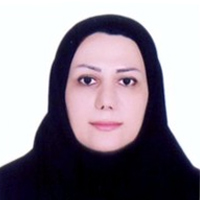Leprosy persistence in the health district of Kenieba despite its elimination as a public health problem at the national level in Mali
Published on: 21st February, 2020
OCLC Number/Unique Identifier: 8541461066
WHO defined leprosy elimination as reaching a prevalence < 1 case of leprosy per 10,000 inhabitants. Mali eliminated the disease since 2001 but in 2011, it recorded 226 new cases. This has a serious involvement in term of disease spreading. Therefore, we undertook a cross sectional study in Kenieba health district, still above the WHO recommended elimination threshold to better understand the disease epidemiology and its associated potential factors. The study took place from October 2013 to September 2014. All consenting villagers, living in one of the selected villages were included and clinically examined for leprosy signs.
Drug Eruptions at Patients in Consultation at the Dermatology Department of the Dermatology Teaching Hospital in Bamako, Mali: Epidemiological, Clinical and Etiological Study
Published on: 28th April, 2021
OCLC Number/Unique Identifier: 9028058489
The administration of a drug substance is an essential step in the management of a patient. It aims either to cure the patient, to prevent a given disease or sometimes to help with the diagnosis. Unfortunately, the action of the drug can go beyond the desired effect, and cause skin-mucous accidents. These accidents, also known as drug-induced attacks, can be isolated or associated with systemic manifestations [1]. Drug eruption is a real public health issue because of the high frequency. In Europe, drug eruption is responsible for about 20% of spontaneous reports of drug accidents. They complicate 2% to 3% of hospital treatments and motivate 1% of consultations, 5% of hospitalizations in dermatology [2]. Some African authors were interested in the subject. Reported prevalence in hospital settings ranges from 0.4% to 1.53% [3,4]. In Mali, there are no national figures. Old statistics from the Department of Dermatology show that about thirty cases occur each year, most of which are represented by severe forms. However, the risk of drug eruption is thought to be very high due to increased local use of drugs without medical advice, the illegal proliferation of drug outlets (‘Street Medicine’). And the lack of enforcement of existing regulations. In addition, some authors believe that the advent of antiretrovirals and the use of antiInfectious infections used to treat opportunistic infections have increased the risk of Drug eruption by 4 to 30 times, particularly in subjects infected with the acquired human immunodeficiency virus (HIV) [2]. This same risk can be observed in leprosy patients on combination chimotherapy. Clinically, the diagnosis of drug eruption is not as easy as one might think because of clinical polymorphism. The responsibility of a drug for the onset of a reaction is also not easy to establish, as in most cases several drugs are administered simultaneously before the onset of the rash. Because of illiteracy, patients find it difficult to make a complete list of the molecules consumed. To this must be added the high frequency of counterfeit medicines circulating both on the street and in private pharmacies. Given the scarcity of African studies and due to local specificities, it seemed interesting to us to undertake a study on Drug eruption in the dermatology department of the Dermatology teaching hospital of Bamako whose purpose is to study epidemiological aspects, clinical, etiological and to identify the molecules responsible in these patients.
Association between clinical forms of Leprosy and contacts with the vaccination state with BCG in five endemic municipalities in the Brazilian Amazon
Published on: 19th July, 2022
OCLC Number/Unique Identifier: 9575035083
Introduction: The World Health Organization (WHO) strategy for leprosy control from 2021 to 2030 focuses on interrupting transmission, reducing autochthonous cases to zero, and using a safe and effective vaccine and chemoprophylaxis. In 2020, 127,396 new cases were registered in the world, 19,195 new cases in the Americas, and, of these, 17,979 cases in Brazil, about 93.66% of the total in the Americas. Brazil is classified as a country with a high burden of the disease, occupying the 2nd place in the world, behind only India (WHO, 2020). Análise do período de 2010-2015 em publicação recente9, apresenta as seguintes cidades no estado do Pará nas quais se observou maiores taxas de incidência (detecção): Marituba, Belém, Marabá, Parauapebas e Altamira [9]. Material and method: This is an analytical retrospective study carried out in a database - Epi-Info resulting from records of Surveillance and Seroprevalence actions in five endemic municipalities for leprosy located in the Southeast and West of Pará. The following variables were analyzed: age, sex, Clinical Classification, vaccination status with BCG, and the result of the search for IgM antibodies against PGL-1 of Mycobacterium leprae by the “In house” ELISA technique. Results: We evaluated 1551 records examined in the laboratory from 2014 to 2016, which were classified into 123 Multibacillary -MB patients (123/1551 = 7.93%); 71 Paucibacillary-PB patients (71/1551 = 4.57%); 451 Intradomicilliary Consanguineous Contacts - CCOSI (451/1551 = 29.07%) and 906 Non Consanguineous Contacts - CNCOS (906/1551 = 58.41%). 57 MB patients (13.47%), 13 PB patients (3.07%), 133 CCOSI (31.44%) and 220 CNCOS (52.00%) were positive for PGL-1. The correlation of the Classification with the vaccination status showed 57 MB patients without any BCG (57/125 = 45.6%) and only 3 patients with two doses of BCG (3/125 = 2.4%); 17 PB patients without any dose of BCG (17/69 = 24.63%); 80 CCOSI without any BCG (80/455 = 17.58%) and 171 CNCOS (171/906 = 18.87%). The odds ratio (OR) in the analysis between unvaccinated MB patients compared to CCOSI was statistically significant (OR = 14.25; p ˂ 0.0001). The study shows the importance of using the BCG vaccine in healthy contacts of patients with leprosy, as it shows the probability of unvaccinated individuals being 14.25 times more likely to become ill with Multibacillary forms compared to CCOSI. In addition, the BCG vaccine has been in use for 80 years and is the only vaccine that we can use in leprosy control programs. Conclusion: Although the leprosy epidemiological data analyzed recently (2010 - 2015) show a downward trend in the main indicators in Pará, such as the detection of new cases and prevalence, the endemic municipalities are still classified as hyperendemic for the population under 15 years of age and This proves that Surveillance is essential, as well as BCG vaccination according to the Ministry of Health Standards.
An Urticaria Closet Simulating Leprosy in A 36-Year-Old Woman
Published on: 24th June, 2023
Urticaria corresponds to a papular edematous pruriginous fleeting rash on the skin whose cause is most often allergic (food, medicines, insect bites, etc.).Its management is often difficult because of its significant impact on quality of life. Its prevalence is estimated at 0.6% - 1.3% of the general population. Leprosy is a chronic infectious disease caused by Mycobacterium leprae (M. leprae) or Hansen’s bacillus (BH). Considered as the great simulator leprosy can pose a diagnostic problem with many other dermatological pathologies. This is a 36-year-old patient with a history of chronic urticaria treated with Loratadine 10 mg who consulted the Bamako Dermatology Hospital for a large erythematous cupboard, oedematous fixed on the buttocks evolving for more than 3 days. The interrogation found the notion of pruritus, hives, and physical examination, showed large erythematous plaques, edematous very limited, dark red color, and slightly copper resembling the closet infiltrated by leprosy. The pruriginous nature of the lesions and the absence of other cardinal signs of leprosy allowed us to make the diagnosis of chronic urticaria.




